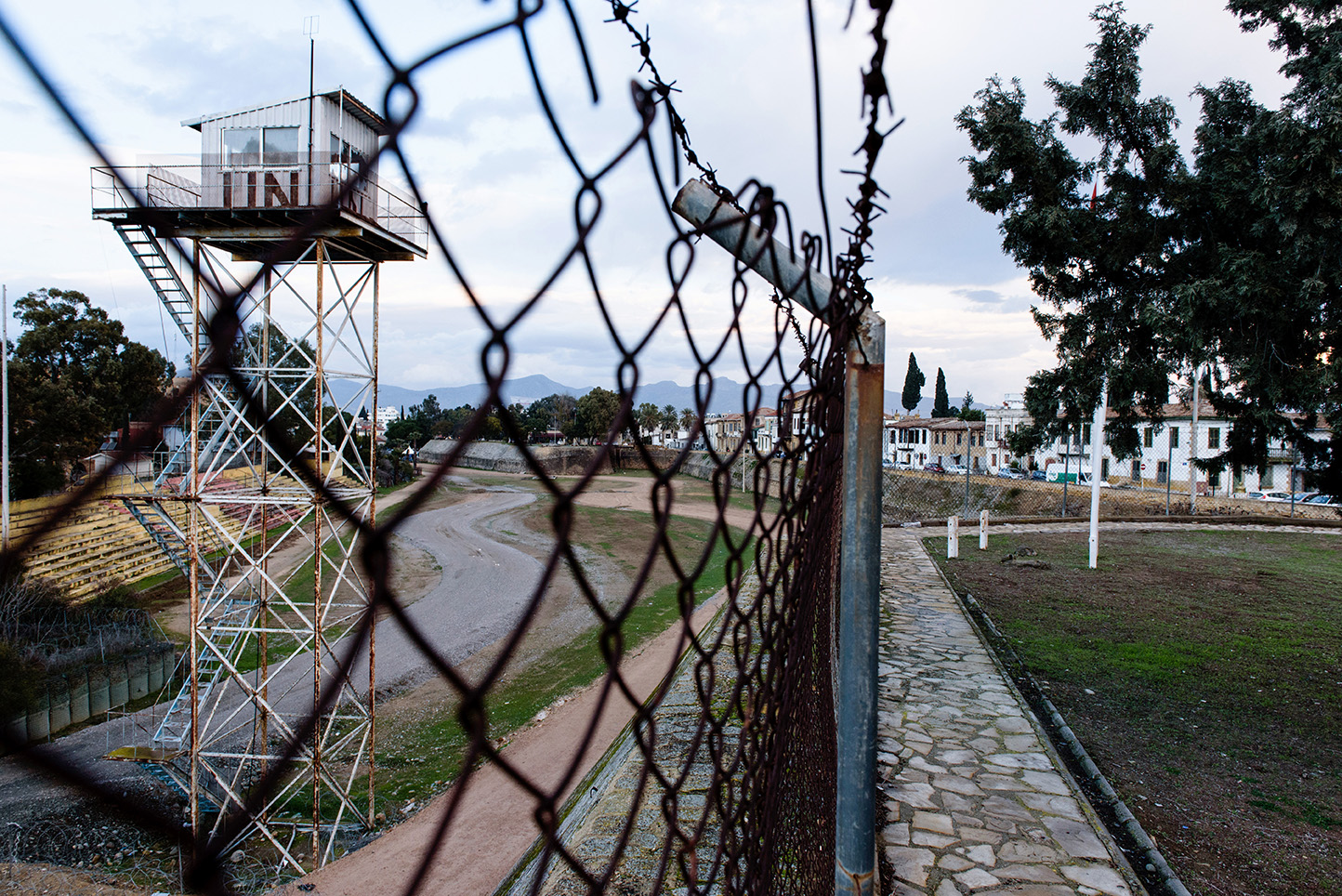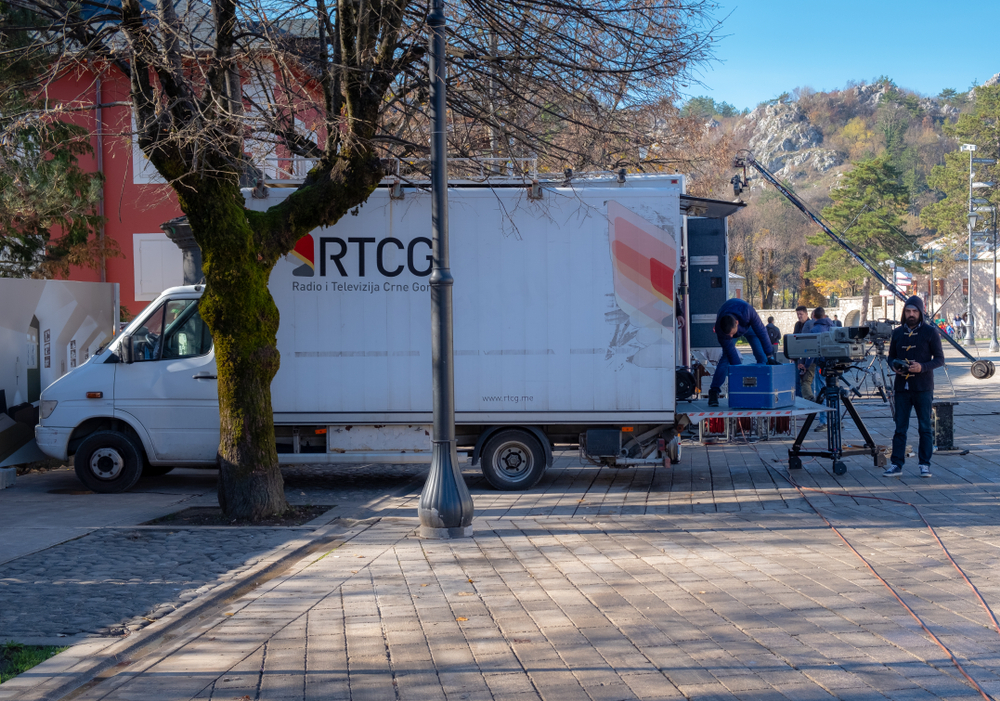EU accession: Cyprus as a model for Ukraine, Georgia and Moldova?
The lack of territorial integrity of Cyprus – an EU member state since 2004 – has never been a vital issue for the Union, but this could change in the case of the three new candidate countries. An interview with Denis Cenușa, associate expert at the Geopolitics and Security Studies Center

CYPRUS
Cyprus - Photo by European Commission, free use
Three and a half years have now passed since Ukraine, Moldova and Georgia applied for EU membership. Amid rapid progress towards the 2027 goal, hampered by vetoes imposed by Orbán’s Hungary or stalled by the undeniable democratic setbacks, in the case of all three candidates there remains – albeit latent – an issue that is as crucial at the national level as it is complex in the European context: the presence of separatist or Russian-occupied territories.
Looking closely, there is already an EU member state that has not fully exercised its sovereignty over the entire national territory for over twenty years now. The island of Cyprus has been divided into two since 1974 – the Republic of Cyprus and the Turkish Republic of Northern Cyprus – and even EU accession in 2004 did not lead to reunification (due to opposition from the Greek Cypriot). Thus, only the Republic of Cyprus has joined the European Union, and to date every diplomatic effort to resolve this unique situation within the EU has been futile.
“The truth is that the lack of territorial integrity of Cyprus has never represented a vital problem for the EU as a whole. Most likely, the idea was to apply the same logic to the territories in Georgia, Moldova and Ukraine”, explains Denis Cenușa, a Moldovan political scientist and associate expert at the Geopolitics and Security Studies Center (GSSC).
However, faced with such a complex issue, we need to ask ourselves to what extent Cyprus can serve as a precedent capable of indicating to Brussels the path to take if the three new candidates were to enter the EU. We must also take into account the fact that EU membership could be one of Ukraine’s “security guarantees” in possible future peace negotiations with Russia.
Can Cyprus actually serve as a model of EU integration for countries that do not exercise full sovereignty over their entire national territory?
When the EU granted candidate status to Ukraine, Moldova and Georgia, it already knew it would also have to address issues of separatism and territorial integrity. Simply put, Brussels knew exactly what it was doing. After all, among the EU members there is already a country dealing with a territorial issue.
In my opinion, the Cyprus solution can hardly be defined as a positive one. I would rather say that this is the only possible path for the EU to take.
In other words, Cyprus served as a kind of learning process for the EU on what it means to have within its borders a country grappling with a vital issue of territorial sovereignty, which however is not equally vital for the EU as a whole.
Do you think the EU could do the same with Ukraine?
While recognising that the problem is twofold, it can be summarised by saying that today the case of Russia is completely different from that of Turkey.
First, Turkey is a candidate country for EU membership and has never been considered a threat to the European Union’s security. Although Turkey’s accession process is at a standstill, it is not comparable to the dynamics between Russia on the one hand and Ukraine, Georgia and Moldova on the other.
Second, there is the issue of geographical proximity. Besides the fact that it is occupying territories, Moscow is considered the main existential threat to the member states geographically closest to Russia and, by extension, to the entire Union.
What limitations does Cyprus face in terms of European integration?
The lack of complete control over the entire territory is both a security and socioeconomic issue, creating structural difficulties for the country and potentially discouraging foreign direct investment.
In addition to uneven development, the territories are contested in terms of public administration and we witnessed the emigration of the population from the regions that came under Turkish control.
Furthermore, when it comes to separatism, such situations create problems between EU member states and countries aspiring to join the Union. Looking at events from Turkey’s perspective, it is often argued that Cyprus, along with States Greece, is the main obstacle to Turkey’s accession to the Union – not the issues related to democratic institutions and the rule of law, but rather the lack of good relations with its neighbors.
However, I do not think Turkey is willing to compromise, especially considering that security and defense have become key issues on the agenda in discussions with the EU. If member states truly want to strengthen European security, they cannot do so without Turkey.
The issue of security is taking on an increasingly central role in the accession negotiations. It is a key factor in the way the EU is defining its enlargement policy.
Is it more important for the EU to integrate a country that does not have full sovereignty over its territory rather than leave it out?
This is certainly a very important issue. The Union can use the European integration process as a driving force to encourage communities in the occupied territories to accept again constitutional oversight.
Another difference between Cyprus and the three candidate countries must be underlined. The Cypriot territory under Turkish control is experiencing a certain degree of development, because Turkey is one of the most powerful countries in the region, with an economy that is holding up, despite all its problems and weaknesses, and is an important diplomatic player.
As for Ukraine, Georgia and Moldova, even if Russia were to suddenly begin developing rapidly, the territories it directly or indirectly occupies would still remain grey zones where no one would be truly interested in investing. These areas would have fewer development opportunities than the Turkish Cypriot territories, which Ankara supports economically and which have official trade relations with Turkey.
Furthermore, neither Turkey nor the Turkish Cypriot territories are subject to international sanctions. On the other hand, the Ukrainian territories occupied by Russia are subject to EU sanctions and will not be able to develop at all. This is an important difference.
Should the EU’s financial support for the Turkish Cypriot community be interpreted as a sign of the EU’s hope regarding a possible reunification of Cyprus?
The path to the reunification of Cyprus will not be easy, because Greece and Turkey support the island’s two communities, for different reasons.
The financial support provided by the EU to the Turkish Cypriot community through its multiannual budget [438 million euros according to the budget proposal for the period 2028-2034, ed.] is a kind of hidden hand of the Union trying to keep development in Cyprus as balanced as possible.
In my opinion, the idea is to avoid distorting the development of the two communities. This is possible through coordination – or at least close communication – with Turkey, because the latter would not accept any decision taken without its consent in that part of the island.
Could similar support be provided to the three candidate countries if they become full members of the EU?
This scenario could come true in the case of Moldova, where the Transnistria region already trades with EU Member States, especially with Romania.
This is possible because Moldova is implementing part of its economic association agreement with the EU. In a somewhat unsynchronized manner, the Transnistria region also benefits indirectly from access to the EU market. The situation is completely different for Georgia and Ukraine.
A war is still raging in Ukraine, but even before 2022, the separatist regions of Donbas and Luhansk were barred from trading with the EU due to international sanctions. A similar situation has been observed in Crimea since 2024, although there have been cases of products sold abroad, circumventing the sanctions.
The situation in Georgia is even more complicated. The independence declared by Abkhazia and South Ossetia has been recognised only by Russia and a few others countries. These territories are effectively independent states and the EU cannot do anything about it, not even sanction them. At the same time, Tbilisi has no leverage to impose EU rules in these two territories, as Chişinău manages to do in Transnistria which cannot sell goods to Romania without passing through the constitutional territory of Moldova or its ally Ukraine.
When discussing “security guarantees” for Ukraine, EU membership is also mentioned. But could the lack of full sovereignty over territories occupied by Russia pose an obstacle to negotiations with Brussels?
This issue is important for two reasons. First, regardless of what happens to the territories occupied by Russia, when the EU granted candidate status to Ukraine, it considered the whole country, without separating Kiev-controlled Ukraine from the regions under Russian occupation, including Crimea.
By default, when EU accession happens, it will involve the whole country. And the same principle applies to Georgia and Moldova.
Another question is whether military action will continue in those territories. This would be an unprecedented situation. The EU is already setting a new precedent by opening accession negotiations with a country at war to counter a direct threat to the Union’s security.
This has never happened before in the history of EU enlargement. But it is still possible because Brussels has already acknowledged that it will have to negotiate with a candidate country whose territories are disputed by the EU’s main geopolitical rival.
This article has been written within the project “InteGraLe - Western Balkans vi-à-vis the Trio: single market, cohesion and regional policy for gradual integration into the EU ”. This project is realized with the support of the Unit for Analysis, Policy Planning, Statistics and Historical Documentation - Directorate General for Public and Cultural Diplomacy of the Italian Ministry of Foreign Affairs and International Cooperation, in accordance with Article 23 ‒ bis of the Decree of the President of the Italian Republic 18/1967. The views expressed in this report are solely those of the authors and do not necessarily reflect the views of the Ministry of Foreign Affairs and International Cooperation.
Tag:








